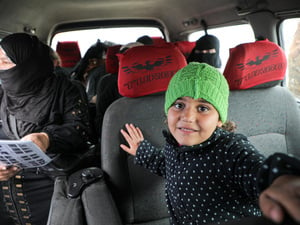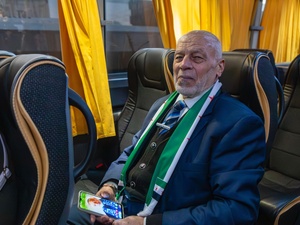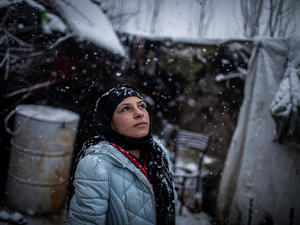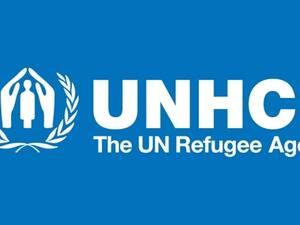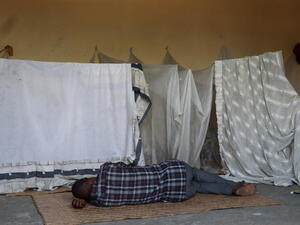Families fleeing Mosul assault find safety in Iraq, Syria
Families fleeing Mosul assault find safety in Iraq, Syria

A displaced Iraqi man sits in a tent at Zelikan camp in the Kurdistan Region of Iraq.
ZELIKAN CAMP, Kurdistan Region of Iraq – Iraqi grandfather Majid* says he and his family “lived for two years in hell” after their village in the north of the country fell under the control of extremist groups.
But on a day he never thought would come, Majid and 20 members of his extended family were finally freed, when Kurdish Peshmerga fighters liberated their village and escorted them to the newly built Zelikan camp, north of Mosul, in the Kurdistan Region of Iraq.
Majid is among Iraqis displaced by an ongoing government offensive in Iraq’s second largest city, now in its second week. So far 248 residents from villages near Mosul have reached Zelikan camp, built and run by UNHCR, the UN Refugee Agency.
“The situation was really bad and we didn’t think we would survive,” Majid, 69, said. “There is no better moment than this to be safe in this tent, surrounded by my wife and children.”
"There is no better moment than this to be safe in this tent, surrounded by my wife and children.”
Across the region, UNHCR is stepping up its preparations to receive those displaced by the fighting to retake Mosul, a once-thriving city that had a population of around 2.5 million before it was captured in June 2014.
In Iraq, 11 facilities are being prepared in anticipation of large-scale displacement from Mosul, which the UN has estimated could reach one million people. The camps will have a total capacity of up to 120,000 people by year’s end, and UNHCR is also securing a total of 30,000 additional tents and 50,000 emergency shelter kits to house families on the move.
“We are stepping up our preparations, in close co-operation with the government and our partners, as the assault on Mosul closes in and civilians may be preparing to flee,” said Djamal Zamoum, UNHCR Senior Emergency Field Co-ordinator in Iraq.
In neighbouring Syria, meanwhile, Al Hol camp in Al Hassakeh Governorate on the country’s eastern border with Iraq is now ready to receive up to 15,000 people – with work well-underway to accommodate a further 15,000. Eventually, up to 50,000 people will be able to be housed here.
Since the Mosul offensive began, 939 Iraqis have arrived at the camp with another 200 people reportedly at the border. New arrivals described the long and difficult journey to reach Syria through uncharted desert roads, with some having to walk for more than 15 days to reach safety.
Many new arrivals have endured brutal conditions under extremist rule, often without access to even the most basic medical care. Most school-aged children arriving at the camp have been out of education for the past two years, while some came unaccompanied and unsure of their parents’ fate. UNHCR and its partners are providing services including counselling, education and medical care.
“Syria has once again shown an open door policy, even when they have a difficult situation themselves.”
UNHCR Representative for Syria Sajjad Malik visited the camp on Sunday and Monday to speak to some of the hundreds of people who have sought shelter there and to get a first-hand look at preparations to shelter more people as the offensive closes in on Mosul.
“Food stocks, relief items and other supplies are on site, enough for 50,000 people,” Malik said. “Syria has once again shown an open door policy, even when they have a difficult situation themselves.”
At the Zelikan camp, which can currently house more than 6,000 people, new arrivals told UNHCR they were simply relieved to have found safety.
“Just before we left our village … hails of bullets were flying around, we are very happy to be in the camp now,” said 60-year old Zahra,* who recently fled her home a few kilometres from Mosul with five of her family members. “This is the first time we have had a peaceful sleep in two years,” she added.
With full funding and readiness, the UN Refugee Agency will be able to provide a range of shelter options inside and outside camps for up to 600,000 people. However, UNHCR has only received 48 per cent - US$95 million - of funds required for its Mosul emergency work, costed at US$196.2million, and is calling on donors for additional help.
Firas Al-Khateeb contributed to reporting from Syria.
*Names have been changed for protection reasons.



